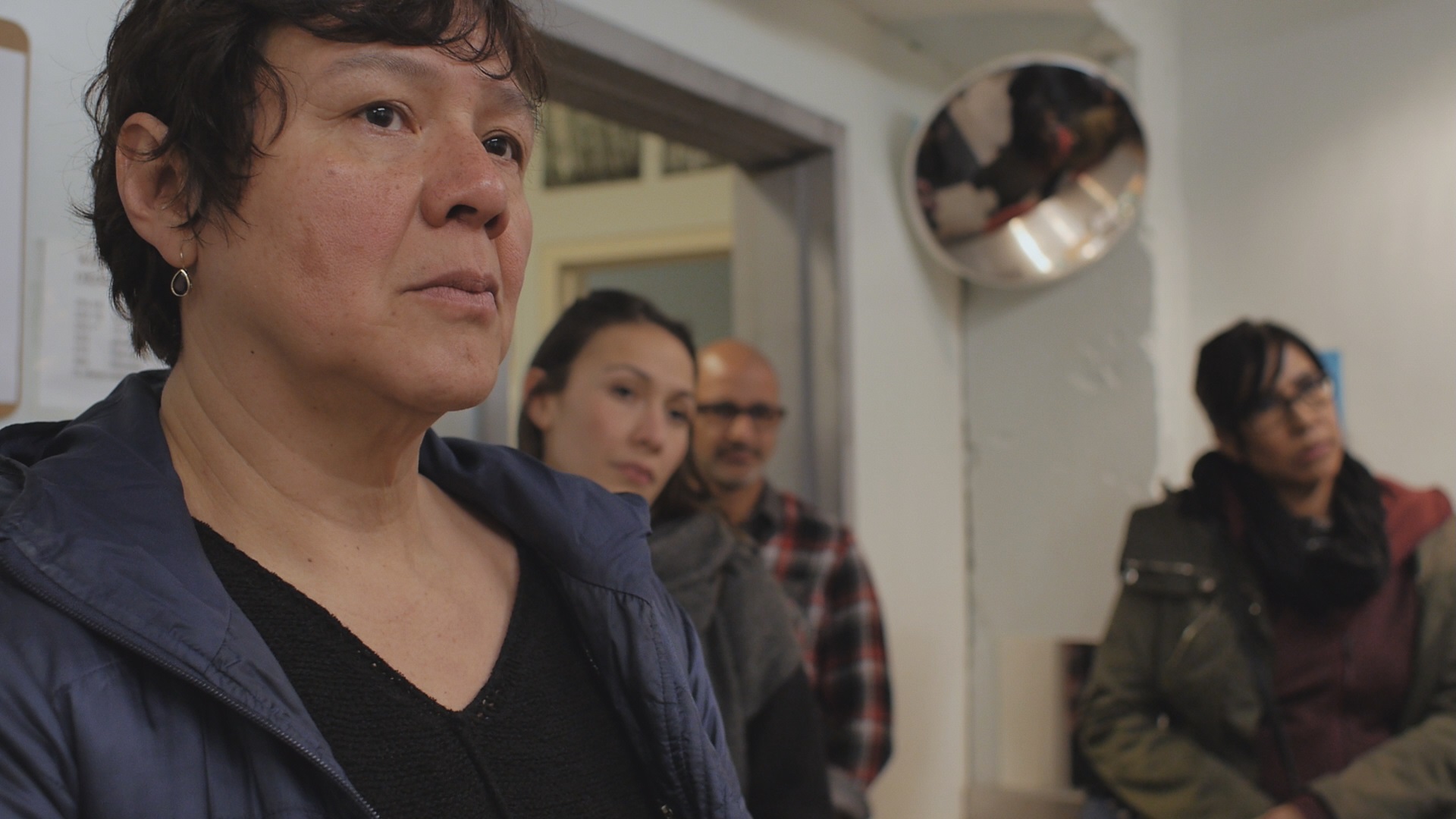A funny thing happened in the Twitter feed Friday. While doomscrolling through COVID-19 updates, Doug Ford-related facepalms, and hot takes on the Will Smith slap, I stumbled upon back-to-back tweets that spoke volumes about the state of Canadian film. The first tweet was one of many reactions to Barry Avrich’s comment during the Canadian Screen Awards Monday in which he said, upon accepting an award for the documentary Oscar Peterson: Black + White: “There are so many Black stories in Canada that need to be told. It doesn’t matter who tells them, we just need to tell them.”
The response provoked immediate controversy. Groups including, but not limited to, the Black Screen Office, Reelworld Film Festival, and BIPOC TV and Film released statements responding to Avrich’s tone-deaf comments and the long history of systemic racism that favours white filmmakers telling Black stories. Even Heritage Minister Pablo Rodriguez weighed in, quote-Tweeting the Canadian Academy’s carefully worded response and using it to exemplify why further legislation will put underrepresented voices at the forefront of telling their own stories.
The prolific Avrich churns out docs every year and often enjoys marquee slots at Hot Docs or TIFF, sometimes in one year. It often seems that he’s getting more space at Canada’s largest film festivals than all Black Canadian filmmakers combined. If Jane Campion put her foot in her mouth with that bad Venus and Serena joke, Avrich served a comment that could put his career on the line. He’s since apologized, but his awards speech served as a catalyst to reveal how one filmmaker can enjoy a disproportionately large slice of the pie.
Still Inconvenient
What makes the outcry to Avrich’s comment so interesting, though, is that social media was a flurry with news that Michelle Latimer’s controversial documentary Inconvenient Indian was making its broadcast debut that night on the Aboriginal People’s Television Network. The second set of tweets I noticed was from the likes of Jonathan Kay to respectable film critics celebrating the film’s return from the throes of cancellation. As a reminder, Inconvenient Indian took the Canadian festival scene by storm in fall 2020. Critics, myself included, praised it as a game-changer for representation in Canadian film with its study of the ways in which colonial violence manifested itself through the appropriation of Indigenous characters and stories in film. Inconvenient Indian swept the festival circuit and Latimer was hailed as the leader in a renaissance for Indigenous cinema.
Then on December 17, 2020, the CBC released a report that challenged Latimer’s claims of Indigenous identity. She had previously described herself as non-status Algonquin-Métis-French Canadian and, as noted in an interview with The Globe and Mail, stands by those claims. But many Indigenous sources believe that she has not done the work necessary to establish herself as a hereditary member of any acknowledged part of the Indigenous community.
In a major plot twist that was too meta for its own good, Inconvenient Indian ironically enacted the same harm it confronted because many of the film’s participants agreed to appear in the documentary on the pretense that an Indigenous filmmaker was handling their stories. The film’s run was cancelled just before its inclusion at Sundance, Latimer’s flame extinguished, and the Canadian film scene found itself in the biggest controversy since Claude Jutra was posthumously accused of pedophilia. Inconvenient Indian sparked the fiercest debate yet about who has the right to tell a story, who has the right to represent a community, and who gets celebrated at the expense of others. That Inconvenient Indian enjoyed a mild comeback the very day the Canadian film scene was embroiled in another controversy about representation, however, indicated that many of us have learned nothing at all.
Knowledge Network
What makes the Avrich/Latimer double whammy especially significant in 2022 is that the numbers validate the concerns of every filmmaker challenging Avrich’s comment. A report released in early February found significant racial disparity at British Columbia’s public broadcaster Knowledge Network, as noted by an independent audit of fiscal years 2014-2021 urged by the Documentary Organization of Canada (DOC), the Racial Equity Screen Office (RESO), and the Vancouver Asian Film Festival (VAFF). The report revealed startling disparities in funding and commissions between diverse filmmakers and white ones (referred to as “non-diverse,” in the audit and organizations’ lingo, which dismisses of the lived experiences of women, LGBTQ people, people with disabilities, religious minorities, and other equity-seeking groups). Only 1.7% of Knowledge Network’s pre-licensing dollars went to production companies led by Black creatives or People of Colour in the last seven fiscal years. Not one of its pre-licensing dollars went to Indigenous majority-owned companies. 93.8% percent, meanwhile, went to “non-diverse” production companies. (I should note that neither doc mentioned above is a Knowledge title.)
The numbers are shockingly low throughout the report. In terms of “leads,” whereby a filmmaker or producer pitches a project unsolicited to Knowledge Network, 83% of the filmmaking teams had key creatives who were not diverse. Only 11% of lead projects had a racialized key creative, while 5.5% had an Indigenous key creative. The numbers are actually much worse if one looks beyond the percentages to the figures that they represent. Knowledge had 18 lead projects studied, which means that, at 11%, only two of them favoured Black or POC filmmakers behind the camera. Only one project had an Indigenous creator. Leads figure especially prominently in the public broadcaster’s portfolio for documentaries, which account for $8,226,569 of the $13,000,000 pre-license budget, or 63%.
Gatekeepers and Being Seen
The Knowledge Network findings have triggered a public call for the removal of Knowledge Network’s CEO Rudy Buttignol, who has held the leadership position for 15 years. While the campaign to oust Buttignol has problems of its own, it has merits. 15 years is a long time for anyone to hold the strings of a public purse. Knowledge Network released a statement committing to do better and Buttignol says the audit “doesn’t tell the whole story,” but the numbers offer a narrative of their own. (Hot Docs will tackle the problem as part of its industry programming this year.)
Beyond the Knowledge Network report, a fuller and more inclusive study of disparities in representation in Canadian screen media can be found in Being Seen, a comprehensive study by the Black Screen Office. The report cites the 2016 Canadian census numbers that 22% of Canadians are visible minorities with Toronto and Vancouver—Canada’s largest production hubs—having populations of 51% and 49% visible minorities. Being Seen notes, “What we discovered through the consultation [with filmmakers and audiences] is that while some felt that they did have some representation, it was not authentic, while others did not see themselves at all.”
Complexity and Authenticity
Being Seen notes complexity as a factor in its report on representation and racial disparity. The report emphasizes narrative complexity as a tool to move beyond tokenism and stereotypes that helps audiences understand the communities depicted on screen. In a film like Oscar Peterson: Black + White, one can see why complexity matters. Writing about the doc in POV’s Fall/Winter 2021 issue, Courtney Small observed, “While Black + White serves as a decent introduction to Peterson’s artistry and phenomenal dexterity on the ivory keys, the man himself gets overshadowed by his music. Aside from glossing over Peterson’s four marriages, and the impact that touring had on those relationships, Avrich shortchanges what an inspiration the musician was to generations of Black Canadians.”
From the outside looking in, that makes sense: a white filmmaker might enjoy Peterson’s music without thinking too much about the life that inspired it. Oscar Peterson celebrates a jazz pianist’s remarkable career, but larger issues of race and discrimination are glossed over anecdotally. Even Peterson’s daughter, Céline, has written about her discomfort with the film, noting, “it is painful for [her] to see outsiders use [Peterson] to further their own agendas, especially when it is publicly masked under false intentions.”
Representation, especially in documentary, matters because filmmakers trade in the lives and experiences of real people. The examples cited in this article don’t mean that a person can’t tackle a story outside their lived experience, but one must actively engage with the communities depicted on screen in order to do so authentically and responsibly. For example, Telefilm Canada’s Production Program guidelines now require applicants to submit a community engagement plan, which notes that the funder “wants to see evidence that the team has considered the potential impact of their production and that they have a plan to work in ways that are collaborative and respectful of impacted communities.” Being Seen similarly offers many valuable directives for filmmakers considering stories outside their communities. The resources are there, so there’s no excuse for further blunders.
Perhaps before even tackling the story, one should return to Avrich’s awards speech: just because one can tell a story doesn’t mean one should. Having a platform means using it responsibly. Sometimes that means stepping back or, better yet, bringing another perspective into the fold to tell the story authentically.













